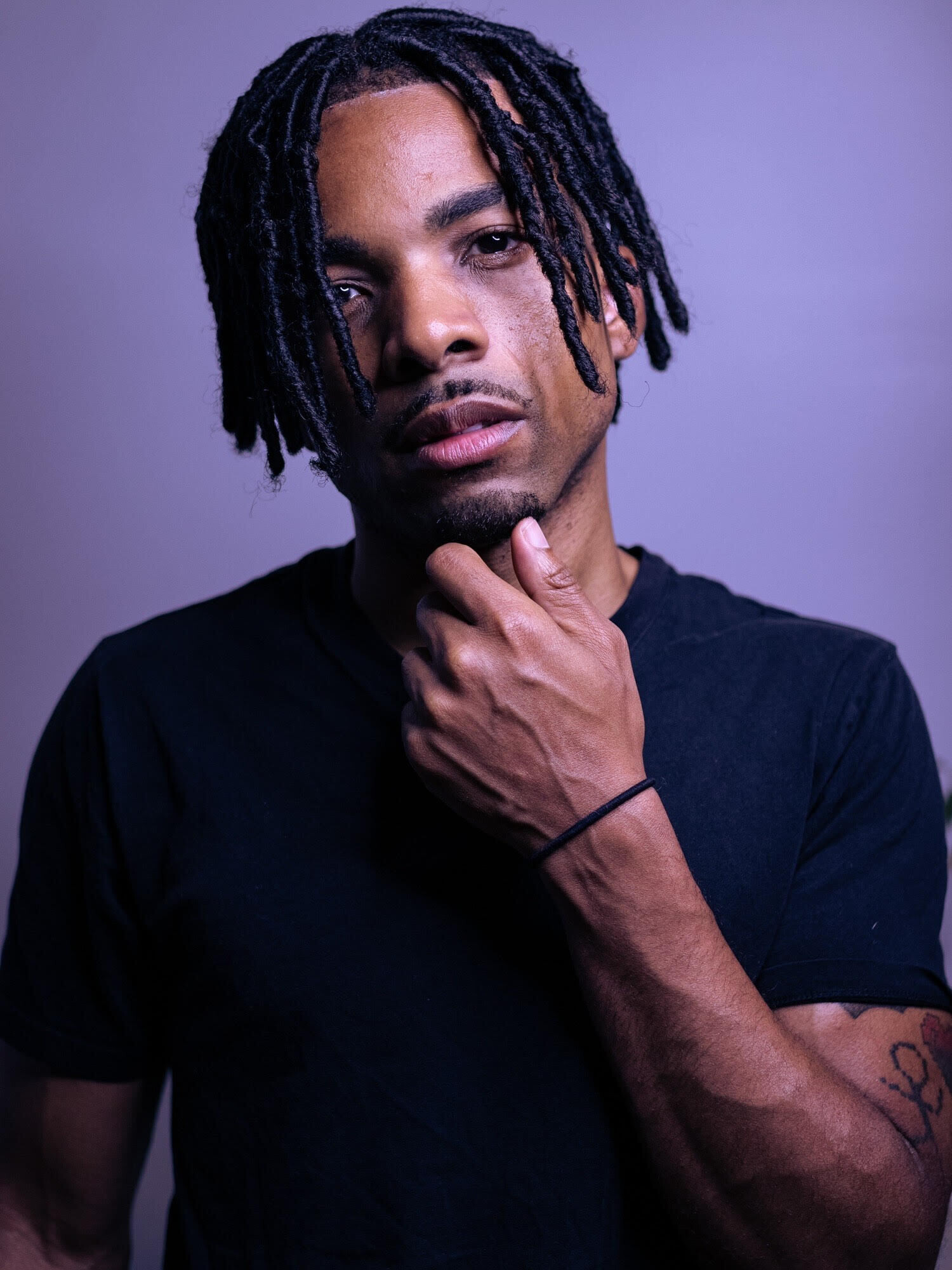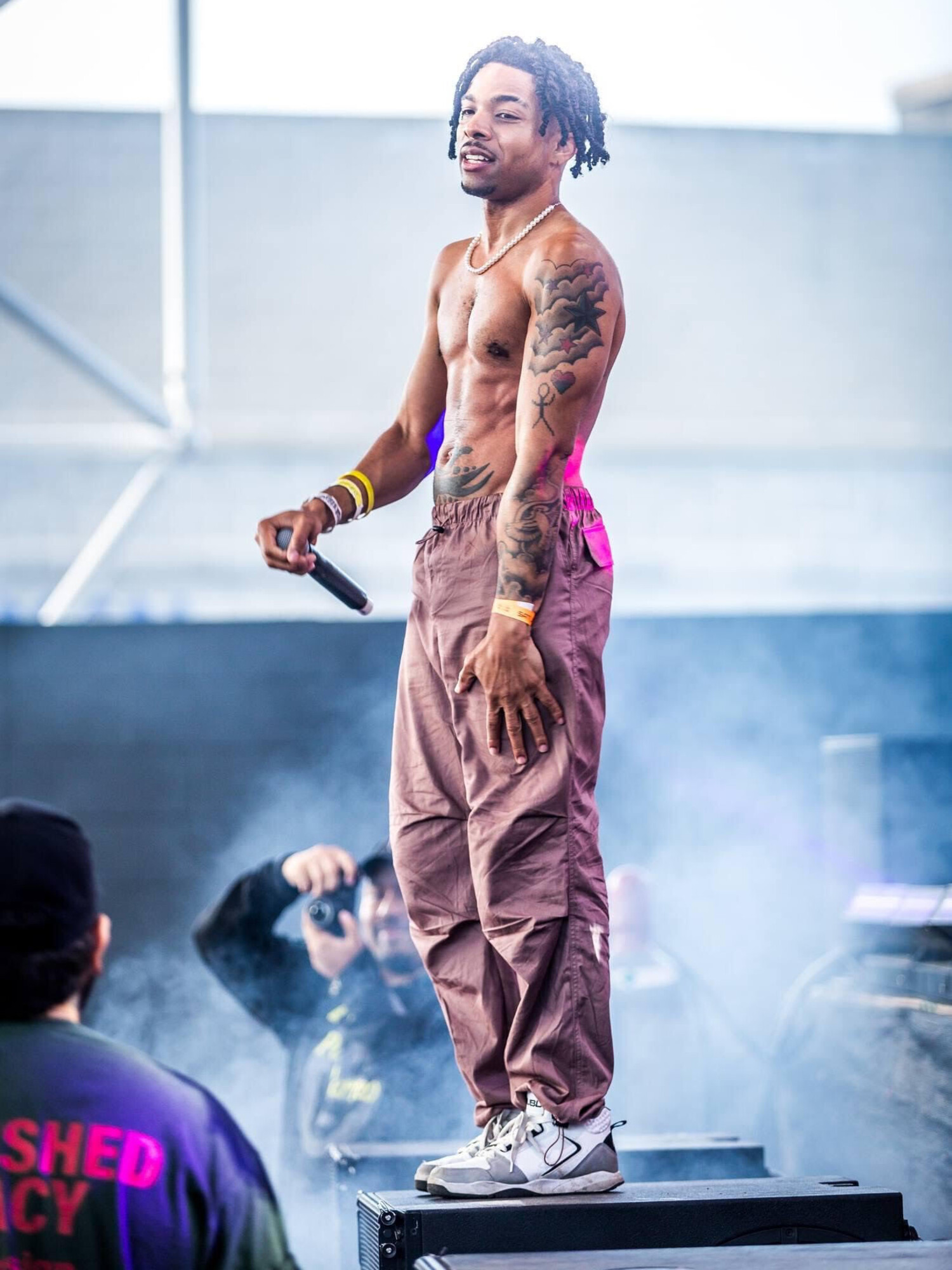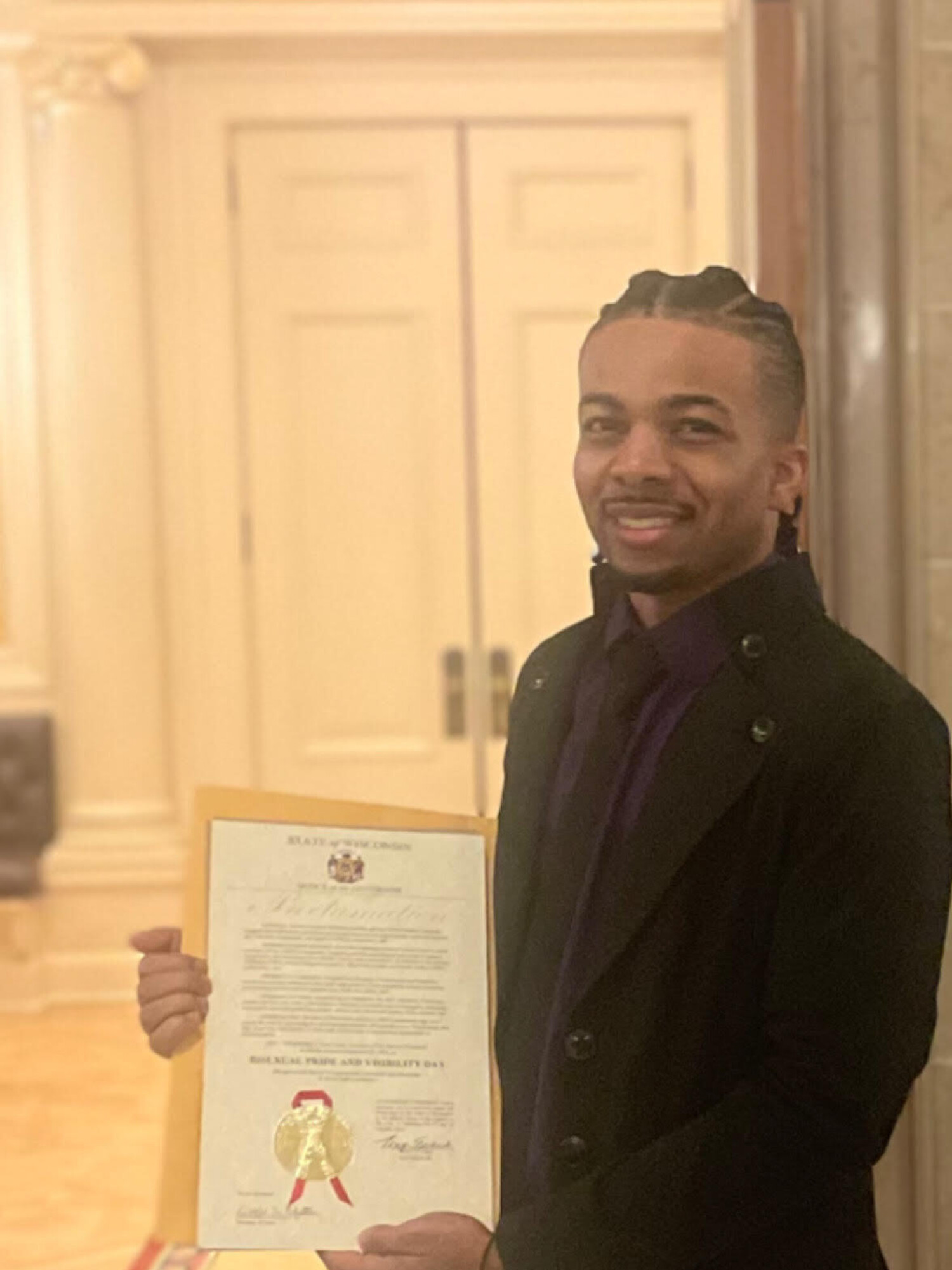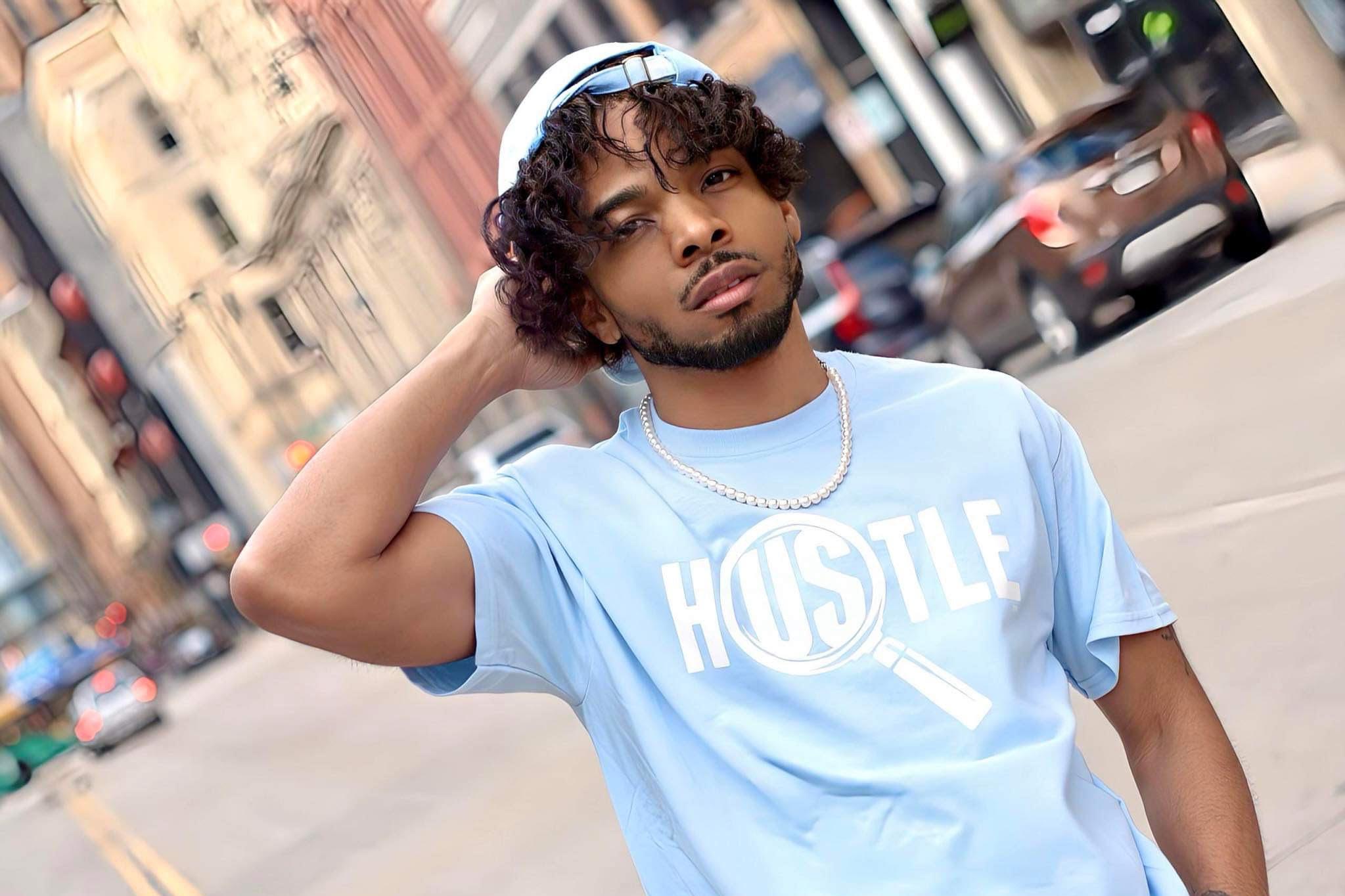
Travis Lynch: building community, compassion, and respect

Travis, better known as Travvy Trav, grew up in Benton Harbor, Michigan.
The city was predominantly Black and the only queer person that he ever knew was his lesbian aunt.
‘In my family’s house, the only time conversations about sex ever came about was when the boys was talking about girls," said Travis. "Even my aunt got in those conversations, because she liked girls too’.
Growing into his teens, Travis moved to Florissant, Missouri where there was a huge culture shock -- because the city of Florissant was a melting pot.
"Florissant had different races and ethnicities, and as far as the LGBTQ community goes, I saw more gay people and lesbians in high school."
"But, as far as bisexual people went, there weren't any’.
During college, he started listening to Tokio Hotel, and the band really spoke to him.
“It was a real turning point,” he said. “The lead singer was genderfluid, and I was 100% attracted to them. So, I started questioning myself, and when college came around, I started hanging out with men. By then, I knew.”
After moving to Milwaukee, Travis didn’t have a lot of people to lean on for support.
“Just like most young Black boys that come from humble backgrounds, I didn’t have anyone to teach me about being bisexual,” said Travis. “It's not something that was talked about. I didn’t really have a mentor, I didn’t know any bisexual Black men in Milwaukee and the city is very segregated. So, there’s definitely no room for acceptance of bisexual folks here.”
“Being a bisexual man, I felt my family wasn’t going to be supportive," said Travis. "One time, I took a selfie with my shirt off to show my tattoos, and one of my aunts messaged my mother saying, 'you better talk to your son.'"
"I didn’t understand why it was a big deal, but they had a big problem with it. And they started questioning my sexuality.”
So, Travis came out on Facebook, where he posted a deeply emotional statement to friends and family.
“On National Coming Out Day, I decided to write a long post basically telling the world. I really didn’t care who approved: it is what it is,” said Travis.
“Hi, I’m bi, and that’s who I am. I felt that I needed to say it.”
While the reception was positive from friends, Travis didn’t feel 100% unconditional acceptance or support from his family. At that time, they still didn’t entirely understand who he was, or why he would choose to announce it.
“Now that I think about it, I wish I had done that sooner, rather than waiting until I was an adult.”
Life, as a bisexual black man
Travis was shocked to learn that bisexuality wasn’t covered by the media until July 1995, when a Newsweek article “announced” a new sexual identity – one that had always existed throughout all human existence.
“Bisexual men are so rarely seen in the media, even now,” said Travis. “Nobody talks about it honestly. Either it’s all about ‘experimentation,’ or a ‘phase,’ where it doesn’t count, because the man winds up with a woman, or the man is ‘on the train to gay’ and just doesn’t know it yet.”
Travis challenges the bisexual stereotypes out there – especially the ones that isolate bisexual men.
“The cards are stacked against bi men,” he said. “People think you’re sexually aggressive, addicted, or promiscuous; that you’re going to cheat with the opposite sex; that you’re going to be a super-spreader of STIs. At the same time, I’ve met many women who are more into bisexual men than they want people to know, but they have these overwhelming fears and insecurities about having a relationship.”
After coming out as bisexual, Travis struggled with social anxiety and depression. Trying to interact in heteronormative spaces became extremely challenging for him.
“In terms of dating, I don’t think at this moment I can get into a long-term relationship, because everyone has their own preferences and agenda. Dating as a heterosexual man is already difficult, so imagine being a bisexual black man.”
Navigating cultural challenges
Travis feels there is some additional stigma within the Black community.
“Black folks, like it or not, we have blood on our hands," said Travis. "Unanimously, no one likes a cheater or a liar. However, when we look at Black stereotypes and attractions, what do we often associate with Black toxic masculinity? A cheater and a liar: the dreaded DL culture."
"Down low men are a turn off for everyone, but bisexual Black men get caught in the crossfire. Those Tyler Perry movies didn’t help at all with Black men and same-sex relationships. While in other communities, bisexuality isn’t a problem -- Bblack people are scared by the idea, because of the HIV epidemic decades ago."
Travis shared a personal example.
“Last September, I was dating someone when Bi Visibility Month came around, and they were very dismissive of the conversation,” said Travis. “They didn’t even want to hear about it. They felt it wasn’t an issue and that I shouldn’t talk about it. They were gay and felt they would be judged for dating a bi person. I got the impression they didn’t want to celebrate bisexuality because it wasn’t something to be proud about.”
“I think this is a problem with both gay and straight people. Both sides will always believe you’re going to cheat with the other. Studies actually show that the opposite is true: bisexual relationships last longer and are more faithful. But this is the crossfire that bisexual people find themselves in anyway.”
Advice for the children, applause for the elders
Travis sees a brighter future for bisexual people. More and more celebrities are coming out. There are more and more bisexual male role models in the world. The scope of bisexual identity is getting bigger and bigger.
“As an entertainer and musician, I’m going to do everything I can to open up that conversation even more,” said Travis. “Young people have a much easier time than they had years ago. As time progresses, sexuality is becoming more open and more fluid. The future is 100% brighter.”
“I am still learning as I go myself,” said Travis. “I am still learning myself. If it wasn’t for BI+ Pride MKE, I wouldn’t be so excited to share my coming out story. Having a supportive community makes such a difference.”
Travis applauds creators for using TikTok to explain and explore bisexual identity with new audiences. He’s also found inspiration from Facebook groups like AmBI and Bisexual Black Men Make Better Music.
In reflection, Travis offers advice to the next generation – and applause for our pioneers of the past.
“Growing up as a bisexual Black boy in Milwaukee, I will be honest, it’s going to be tough,” said Travis. “If you come from a religious household, that makes it so much worse. You have to do your homework. Seek out the like-minded people, to the best of your abilities, and surround yourself with them. Find places of support: if not your family, then a family of your own making. Visit Project Q at the Milwaukee LGBT Community Center. Be public about the conversation you’re having with yourself.”
“But do it safely. Do it one step at a time. And do it for you, not for anyone else.”
“To the older generation of bisexual folks, I say, thank you for your bravery. I know the world wasn’t fair to you, but your sacrifices allowed my generation (and future generations) to be honest with themselves. You haven’t gotten the credit you deserve, but I am here to bring you the flowers."
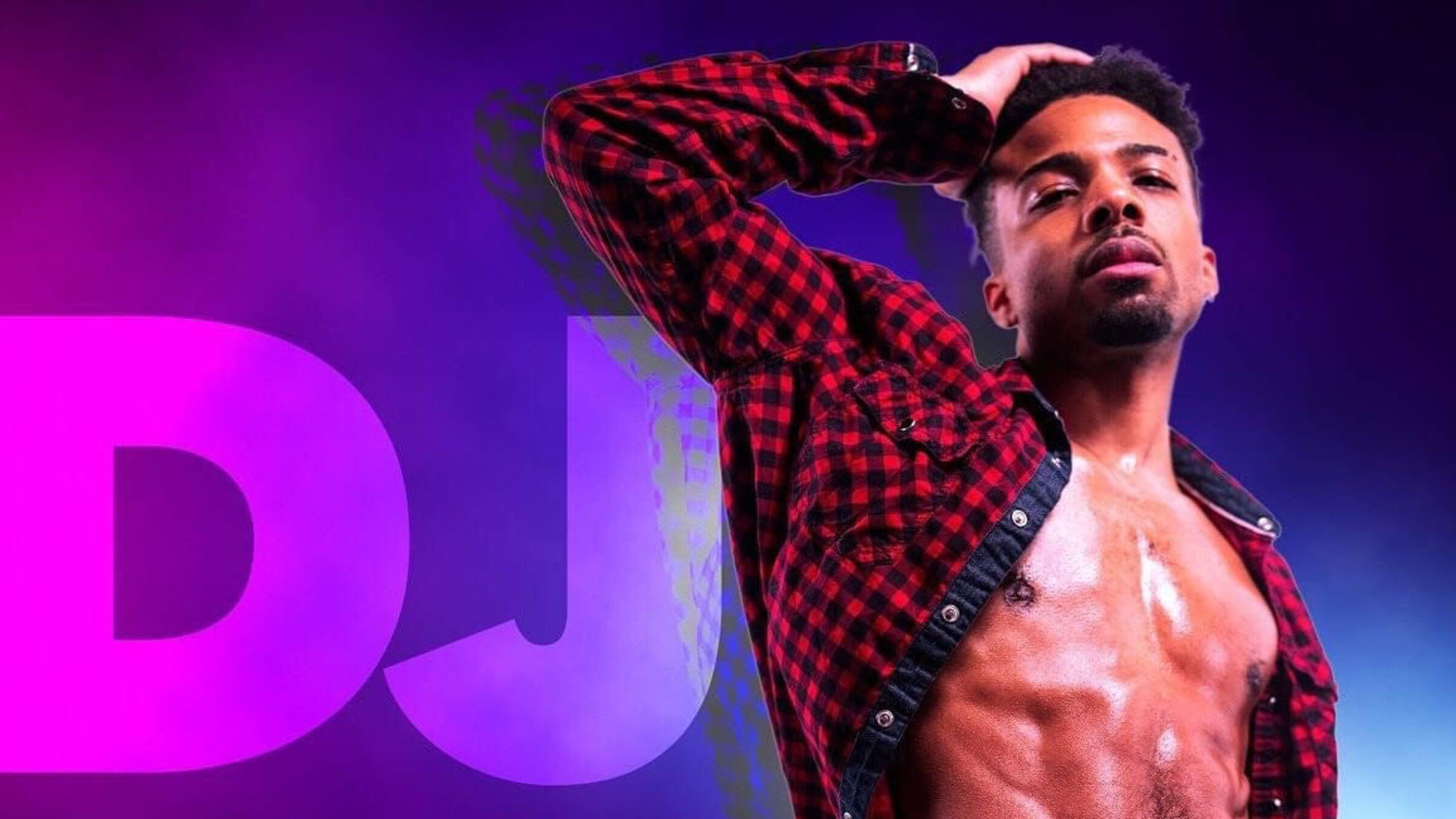 Travis Lynch, resident DJ at This Is it
Travis Lynch, resident DJ at This Is it
recent blog posts
April 06, 2025 | Michail Takach
Camille Farrington & Vicki Shaffer: standing up for students
March 31, 2025 | Amy Luettgen
March 29, 2025 | Michail Takach
The concept for this web site was envisioned by Don Schwamb in 2003, and over the next 15 years, he was the sole researcher, programmer and primary contributor, bearing all costs for hosting the web site personally.
